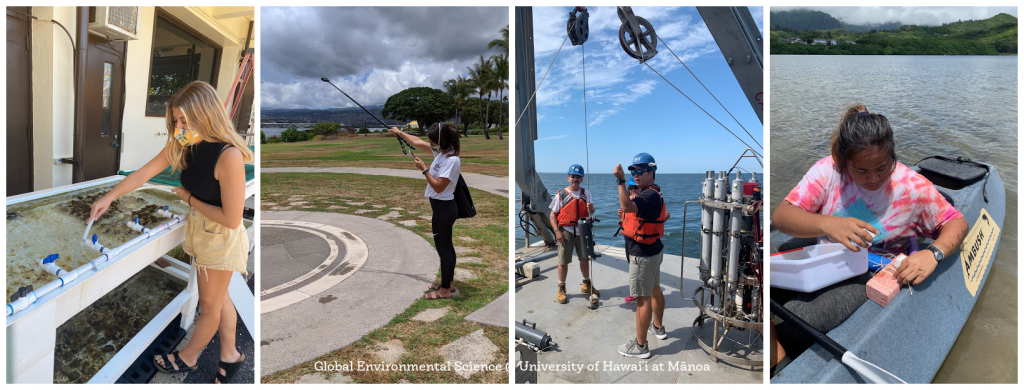
Program Educational Objectives
The Global Environmental Science program expects graduates to be able to:
- Apply knowledge and critical thinking skills to attain advanced disciplinary, interdisciplinary, and professional degrees
- Apply knowledge and critical thinking skills to the practice of environmental science to become leaders in public and private sector professional careers impacting local to global communities
- Apply principles of environmental justice and ethics, sustainability, and Indigenous practices and knowledge in their careers
- Demonstrate the ability to conduct independent basic or applied research
Student Learning Outcomes
All graduates of the Global Environmental Science program are expected to have demonstrated an ability to:
- Identify, formulate, explain, and solve broadly defined technical or scientific problems relevant to local communities and/or global contexts by applying knowledge of mathematics, science, and Indigenous practices and knowledge in environmentally-related disciplines.
- Design a system, process, procedure or program to meet desired needs.
- Develop and conduct experiments or test hypotheses, analyze and interpret data and use scientific judgment to draw conclusions.
- Communicate effectively with a range of audiences in both written and oral communication.
- Understand ethical and professional responsibilities and the impact of technical and/or scientific solutions in economic, environmental, and societal contexts; both locally and globally.
- Function effectively on teams that establish goals, plan tasks, meet deadlines, and analyze risk and uncertainty.
The GES program is accredited by the Applied and Natural Science Commission of ABET. ABET accreditation is recognized globally as evidence that a program meets the standards set by its technical profession.
Updated October 13, 2022
